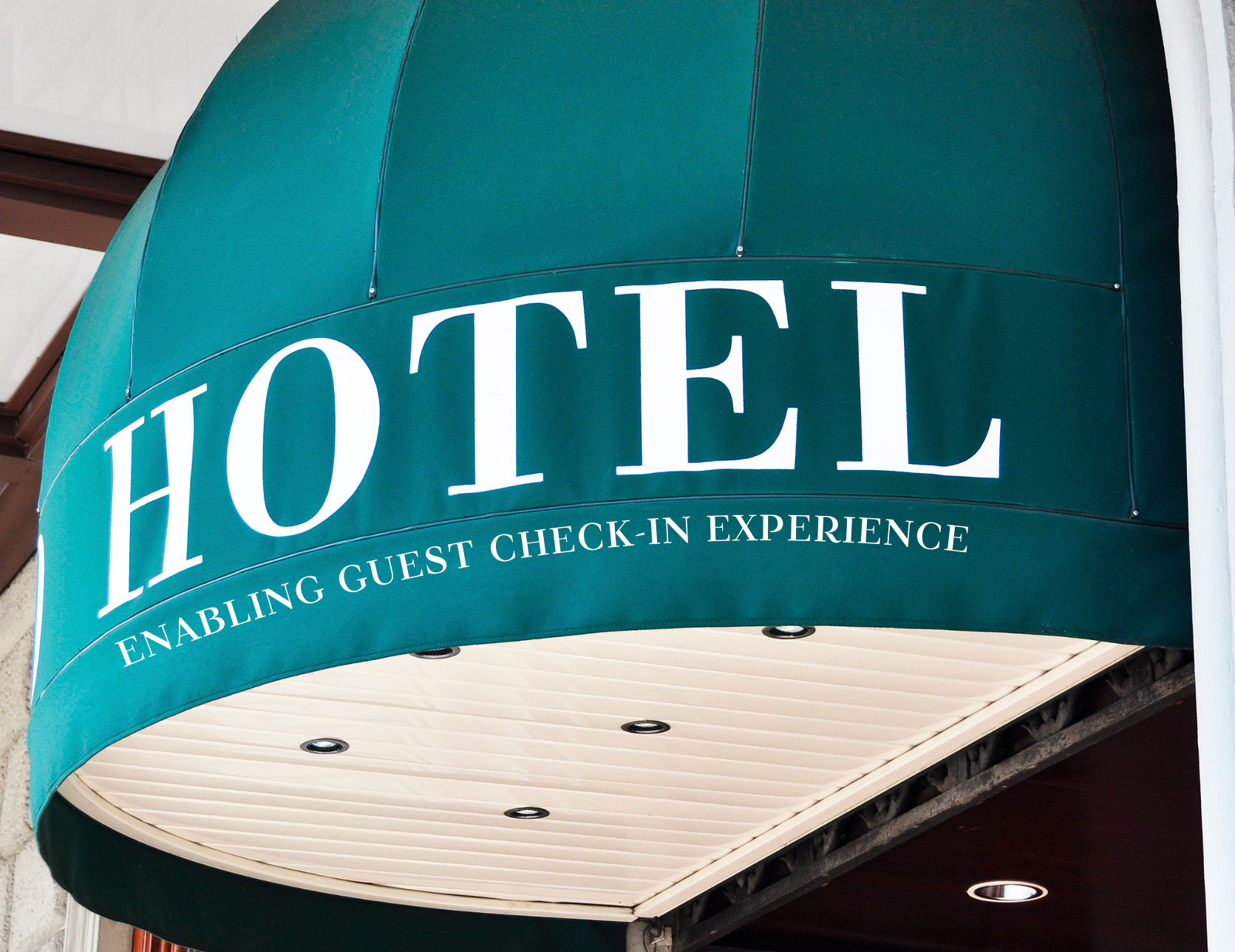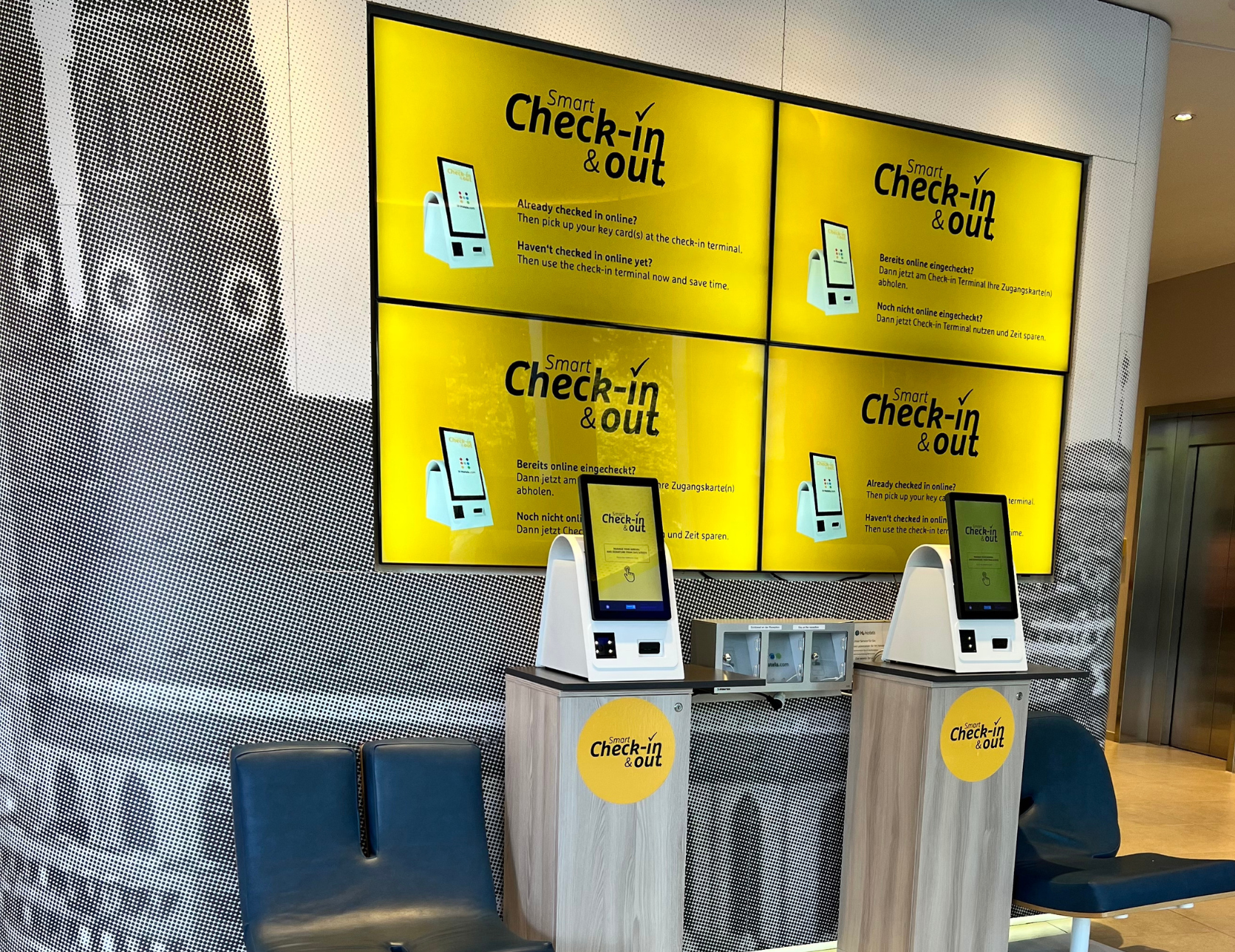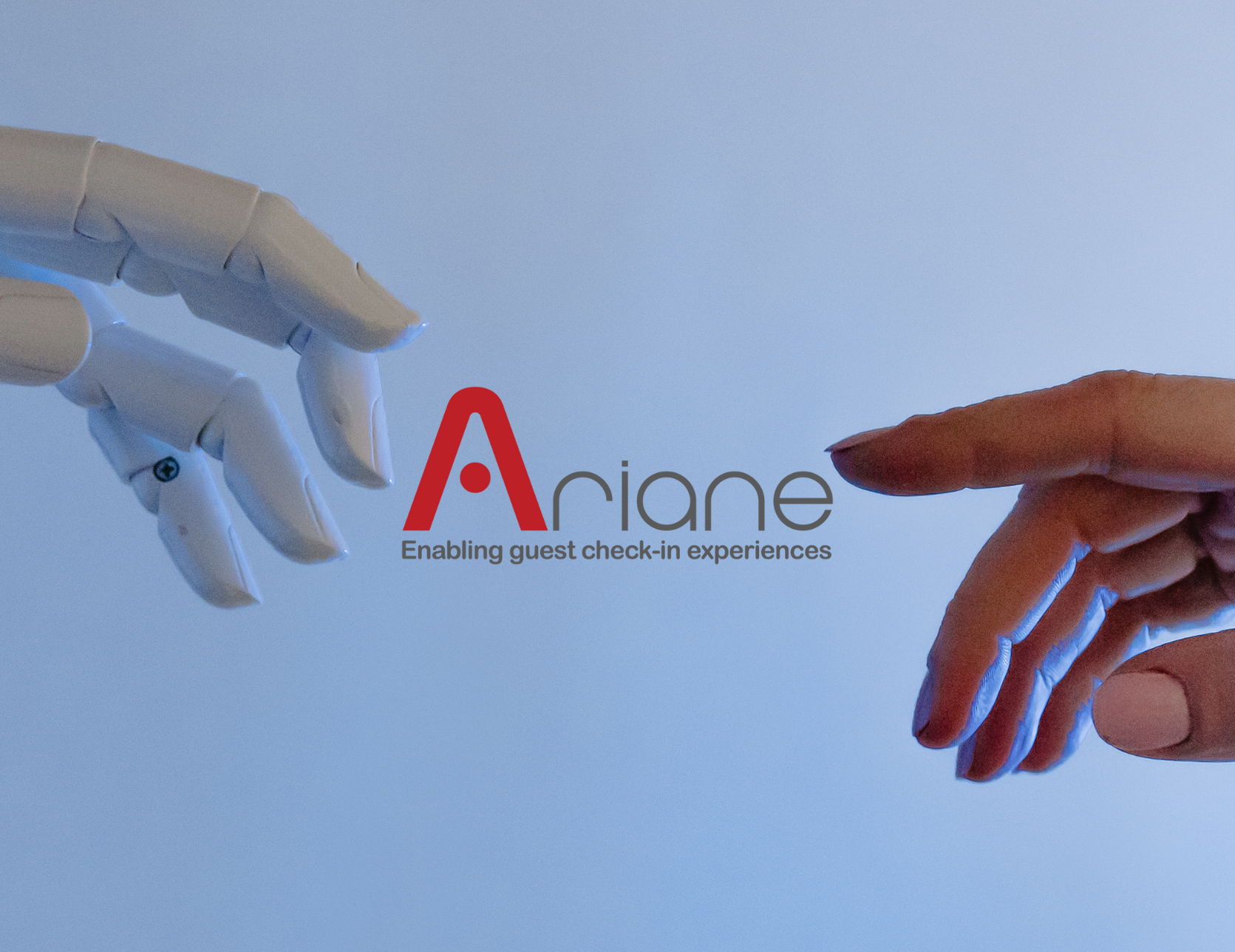Do you want to join our team? We are hiring a Development Team Lead
LEAD A DYNAMIC TEAM TO DELIVER INNOVATIVE SOFTWARE SOLUTIONS. As Development Lead, you’ll oversee a talented team of developers, driving the...
Lorem ipsum dolor sit amet, consectetur adipiscing elit. Pellentesque tortor nulla, rutrum eu nunc a, accumsan iaculis odio. Phasellus facilisis, nibh eu lobortis porttitor, orci ligula vulputate turpis, vitae vulputate lectus elit at ligula.
-2.jpg?width=229&height=320&name=JurysInn-Belfast-20190124-(2)-2.jpg)
Allegro v7 cloud is a powerful and flexible, omni-channel platform enabling self-service for hotels.
Discover our range of indoor and outdoor kiosks for hotels. All made to work seamlessly with Allegro v7 and fit into any hotel environment.
Learn how Allegro v7 can help your hotel staff become more efficient, increase revenue and improve guest satisfaction.
From small to large hotels, 1 to 5 stars, business and leasure, boutique and hostels - Ariane's solutions can help make check-in Safe, Simple, and Efficient for every type of hotel. All of our solutions can easily be adapted to fit the specific needs and reflect your hotel's design.

Ariane Systems is the world leader in providing self-check-in and out solutions for the hotel industry with more than 3.000 installations. They enable Mobile and Kiosk self-service solutions, including all required hardware, consultancy and support for services that integrate to the hotels PMS, keycard system and secure card payment.

3 min read
Ronald Journo : Oct 30, 2023 10:48:06 AM

Throughout these years, there was a significant demand for digital solutions. Not too long ago, hoteliers hesitated to automate guest check-ins and check-outs, often stating, "Personalized service is essential!" However, in reality, the guest experience wasn't very personalized, with long queues in the lobby and receptionists interacting with guests in a somewhat robotic manner, fixated on their computers for check-in.
The hospitality landscape has undergone significant changes, with the influence of COVID being a notable factor. Guests have become more connected and are now accustomed to self-check-in processes. Introducing a self-check-in system for hotels is a complex endeavor, but turning it into a success represents a true team challenge. So, the question is, how can you make it a reality?
First, let's uncover essential insights, challenge common misconceptions, and shift our perspective on achieving self-check-in success.
Here are some insights addressing common misconceptions:
Frequently, I hear hoteliers showing interest in our solutions only during peak hours. However, this approach may not be effective. Staff might not become fully engaged or comfortable with these solutions in their daily routines, potentially leading to gradual neglect. Self-check-in goes beyond being just a tool; it's a mindset. It is also often a service your guests often appreciate and expect to be present at all times.
For a self-check-in project to succeed, it's essential to secure the support and commitment of your teams to make the introduction of self-service a success. You should provide reassurance about the purpose of this service and clarify that these solutions are not intended to replace their roles, making their jobs more flexible and interesting. Aligning your teams with these goals is of utmost importance.
Limiting these solutions to direct bookings seems overly restrictive unless you're an international hotel group. To ensure the success of your project, consider making all types of reservations eligible.
The positioning of the check-in and check-out kiosks holds great significance. They should be prominently placed at the entrance, seamlessly integrated into the guest's journey. Location is a key success factor to consider.
Merely having a kiosk with a "self-check-in" screen design is not enough. Clear and easily understandable signage is indispensable to direct your guests effectively. It's crucial to provide clear and visible signage for all your guests.
Embrace technology within your organization. While this may entail making some compromises, it will ultimately earn the gratitude of both your guests and your staff.
Streamline the guest journey for a more seamless experience!
Following the launch, assessing the outcomes and, perhaps even more importantly, gathering feedback from your staff is crucial. Every hotel has its distinct characteristics, and continuous monitoring is essential for achieving success. Invest time in actively involving your personnel, set goals, assess and adapt as you gain experience.
If one of your goals is to eliminate queues at the front desk, be mindful not to replicate a similar situation in front of the kiosk. While the kiosk check-in process is significantly faster than at the front desk, it typically takes about 15–25 seconds for a key pickup if pre-check-in has been done in advance. However, it could extend considerably if guests need to go through an overly complex police registration form or other administrative complications during check-in. It's crucial to select the appropriate number of kiosks based on the peak hours of arrivals and the maximum number of guests you want to serve at once.
In the present day, we're witnessing the success of various projects featuring diverse hybrid receptions:
It's apparent that automating check-ins and check-outs doesn't diminish the advantages of customer service; rather, it enhances the experience, making it more personal, efficient, and connected.
Feel free to click the button below to delve into this further... See you soon!

LEAD A DYNAMIC TEAM TO DELIVER INNOVATIVE SOFTWARE SOLUTIONS. As Development Lead, you’ll oversee a talented team of developers, driving the...
-1.png)
Today, we sit down with Michel Lavandier, co-founder of Ariane Systems, the world's leading provider of self-service technology for hotels. to...

Ariane Systems, a global leader in self-service check-in and check-out technology for the hospitality industry, is proud to announce its new...

In a world awash with data, the form of statistics is the lighthouse that guides us through the turbulent sea of uncertainty. It's not just numbers;...

Good signage, key criteria for a successful self-check-in implementation.

As a self-check-in provider, Ariane has, somewhat unintentionally, been at the forefront of what is now known as “artificial intelligence” or A.I....